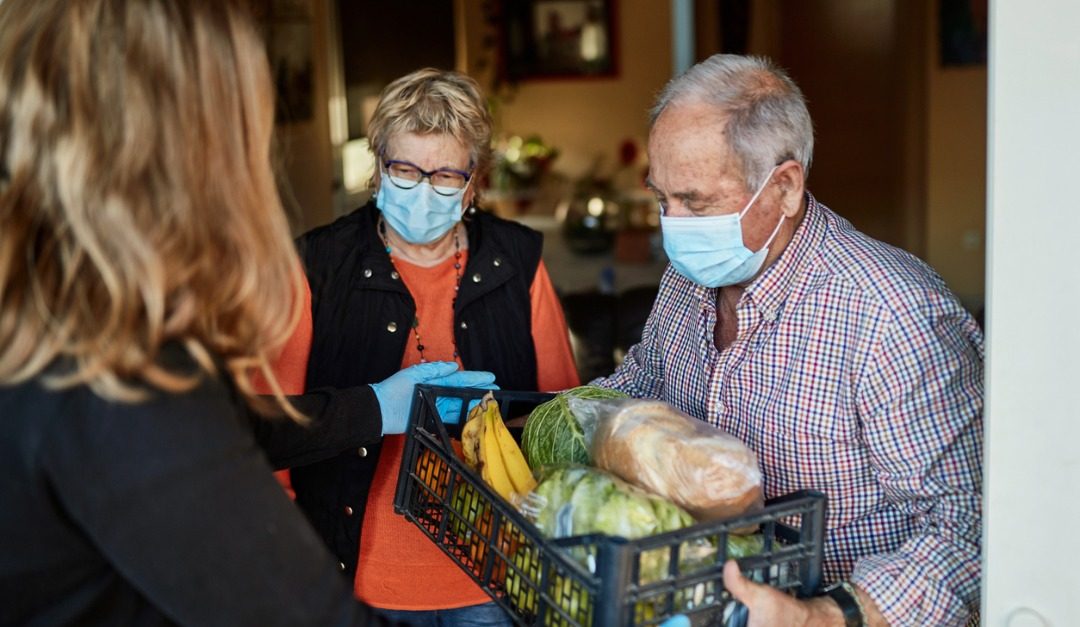COVID-19 has impacted people all over the world—physically, financially and psychologically. Staying at home and practicing social distancing can help prevent the spread of the coronavirus. Those measures can be difficult for anyone, but they may be harder on senior citizens who may already have limited contact with others. Like people in other age groups, elderly adults may also be struggling with food insecurity, anxiety and fear. There are steps you can take to help.
Be Careful if You Care for a Senior Citizen
If you take care of an elderly person, follow guidelines related to face coverings, handwashing and other measures to prevent the spread of the coronavirus. Stay away if you feel ill or believe you may have been exposed to COVID-19. Make sure you get the emotional support you need so you can continue to take care of your loved one during this stressful time.
Keep in Touch
If you do not have to care for an elderly person, avoid physical contact to prevent the spread of the coronavirus. Even though it may not be safe to visit your loved one at home or in a nursing home or assisted living facility, there are plenty of other ways to stay connected.
You can call your family member, send texts and emails, and talk using a video chat program, like Zoom or FaceTime. Many senior citizens are intimidated by the thought of using video chats until someone explains how to do it and they realize how simple it is. Keeping in touch via video can allow you to get a better sense of your relative’s physical and emotional condition and figure out if additional help is needed.
There is a lot of misinformation about the coronavirus that has been breeding confusion. Make sure your family member has accurate information. If necessary, direct your loved one to websites with facts from credible sources or schedule a phone call or video chat with their doctor.
Donate if You Can
Food insecurity has become a problem for people in all age groups, but senior citizens may be particularly vulnerable. Many older adults are on fixed incomes and have difficulty getting to stores and preparing meals. If you have an elderly family member or friend, you may be able to help by ordering groceries online or by teaching your loved one how to do it. You can also make a donation to a food bank or meal delivery program to help the broader community.
Let People Know You Care
During this time of turmoil, many people simply need to feel as though they are not alone and be able to vent about their anxiety, fears, and frustrations. Encourage your loved one to reach out to you and to connect with other family members and friends, and provide other forms of support if you can.




